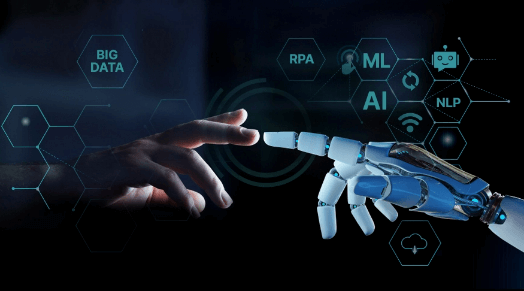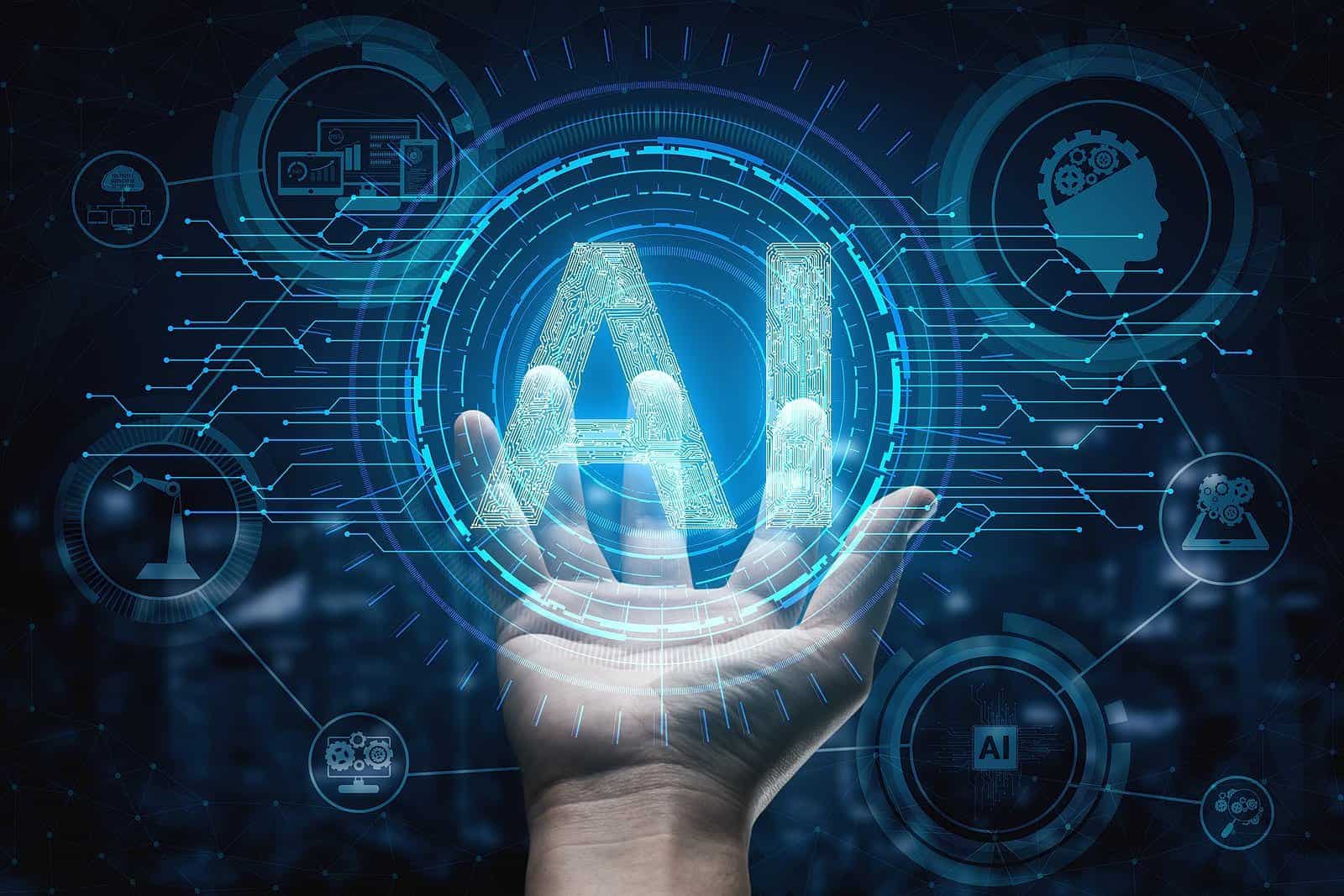Artificial Intelligence (AI) is no longer a concept confined to science fiction. It has rapidly evolved, becoming an integral part of our everyday lives. From enhancing productivity in the workplace to revolutionizing industries like healthcare and finance, AI is poised to shape the future in ways we can’t yet fully imagine. As we move toward a more interconnected world, the role of artificial intelligence will only continue to grow. In this article, we explore how AI is shaping tomorrow’s world and what it means for individuals, businesses, and society at large.
1. The Rise of AI in Different Industries
AI is already making a significant impact across various industries, and its future potential is vast. Here are just a few sectors that are being transformed by AI:
1.1 Healthcare
AI’s role in healthcare has exploded in recent years. With AI-powered systems, medical professionals can now analyze vast amounts of data to detect diseases early, predict patient outcomes, and recommend personalized treatment plans. AI tools are also improving the efficiency of administrative tasks, allowing healthcare providers to focus more on patient care. The future of healthcare will increasingly rely on AI technologies to deliver better health outcomes and improve efficiency in hospitals and clinics.
1.2 Autonomous Vehicles
Self-driving cars are one of the most exciting advancements in AI. Autonomous vehicles use machine learning algorithms and sensor data to navigate roads safely without human intervention. In the coming years, the widespread adoption of autonomous vehicles will transform the way we travel, reducing accidents, traffic congestion, and improving fuel efficiency.
1.3 Finance and Banking
In finance, AI is improving fraud detection, automating trading, and enhancing customer service through AI-powered chatbots. By analyzing vast amounts of financial data, AI can predict market trends and identify potential investment opportunities, providing significant advantages to both businesses and individual investors.
2. The Role of AI in Business and Workplaces
2.1 Automation of Repetitive Tasks

AI is making businesses more efficient by automating repetitive and mundane tasks. From customer service chatbots to automated inventory management systems, AI is freeing up employees to focus on more complex and strategic tasks. This will significantly reduce operational costs and improve productivity in businesses worldwide.
2.2 Decision-Making and Analytics
AI is also revolutionizing how businesses make decisions. By analyzing historical data and identifying patterns, AI can offer valuable insights that help businesses optimize their strategies. This is particularly useful in marketing, where AI algorithms can predict customer behavior and personalize marketing efforts.
2.3 The Future Workforce
AI will undoubtedly impact the workforce, automating certain jobs but also creating new ones. The demand for AI experts, data scientists, and engineers will rise, while more traditional roles may evolve or become obsolete. Workers will need to adapt by acquiring new skills to stay relevant in an AI-driven job market.
3. AI and Society: Ethical Considerations
As AI technology continues to develop, ethical considerations will become increasingly important. Issues such as data privacy, algorithmic bias, and the potential for AI to make decisions that affect people’s lives raise critical questions about its role in society.
3.1 Data Privacy
With AI systems processing vast amounts of personal and sensitive data, privacy is a growing concern. Striking the right balance between data utilization and safeguarding user privacy will be crucial in building trust with consumers and users.
3.2 Bias and Fairness
AI systems are only as good as the data they are trained on. If the data reflects biases, the AI algorithms will also produce biased results. This has significant implications for fields like hiring, law enforcement, and healthcare, where AI could unintentionally perpetuate existing inequalities. Ensuring AI systems are fair and transparent will be vital for their long-term success.
3.3 Accountability and Control
As AI systems become more autonomous, questions about accountability will emerge. Who is responsible if an AI system causes harm or makes a wrong decision? Developing clear governance frameworks and accountability mechanisms will be necessary as AI continues to evolve.
4. AI and Human Collaboration
The future of AI isn’t about replacing humans but rather enhancing human potential. AI can augment human decision-making and creativity, helping individuals achieve more and unlock new possibilities. For example:
- AI-assisted creativity: In fields like design, art, and music, AI is already being used as a tool to help artists explore new creative horizons and produce innovative work.
- Human-AI collaboration in research: Scientists and researchers are leveraging AI to accelerate the discovery of new drugs, materials, and technologies that can improve human life.
AI will serve as a tool to enhance our capabilities, rather than replace us entirely.
5. The Future of AI: What to Expect
The possibilities for AI are virtually limitless, and its future applications will continue to amaze us. Here are some key trends to watch in the coming years:
5.1 AI in Climate Change and Sustainability
AI is already being used to monitor and mitigate the effects of climate change. From predicting weather patterns to optimizing energy consumption in smart cities, AI will play a key role in building a more sustainable future.
5.2 Personalized AI
In the future, AI will be able to provide highly personalized experiences for consumers. From healthcare to education and entertainment, AI will tailor services to individual needs, enhancing convenience and quality of life.
5.3 Advanced AI: The Possibility of General AI
Currently, AI is classified as narrow or weak AI, meaning it can perform specific tasks but lacks general intelligence. The future may hold the development of general AI, capable of performing any intellectual task that a human can do. While this technology is still in the early stages, it has the potential to revolutionize every aspect of life.
6. Preparing for an AI-Driven Future
As AI continues to shape tomorrow’s world, it’s essential for individuals and businesses to adapt. This includes:
- Educating the workforce: Upskilling and reskilling workers to ensure they are equipped for an AI-driven future.
- Embracing AI solutions: Businesses should start integrating AI technologies into their operations to stay competitive and optimize performance.
- Fostering AI ethics: Developing and promoting ethical AI guidelines will ensure that AI technologies are used responsibly.
Also Read: The Future Of Ai: How Artificial Intelligence Is Shaping Tomorrows World
Conclusion
The future of AI is bright, and its impact on tomorrow’s world will be transformative. From improving healthcare and financial services to enhancing productivity in the workplace, AI has the potential to revolutionize almost every aspect of life. However, its advancement also comes with challenges that must be addressed, particularly in terms of ethics, privacy, and fairness. As AI continues to evolve, it is up to all of us—individuals, businesses, and governments—to navigate this new frontier responsibly and ensure that its benefits are shared equitably.

